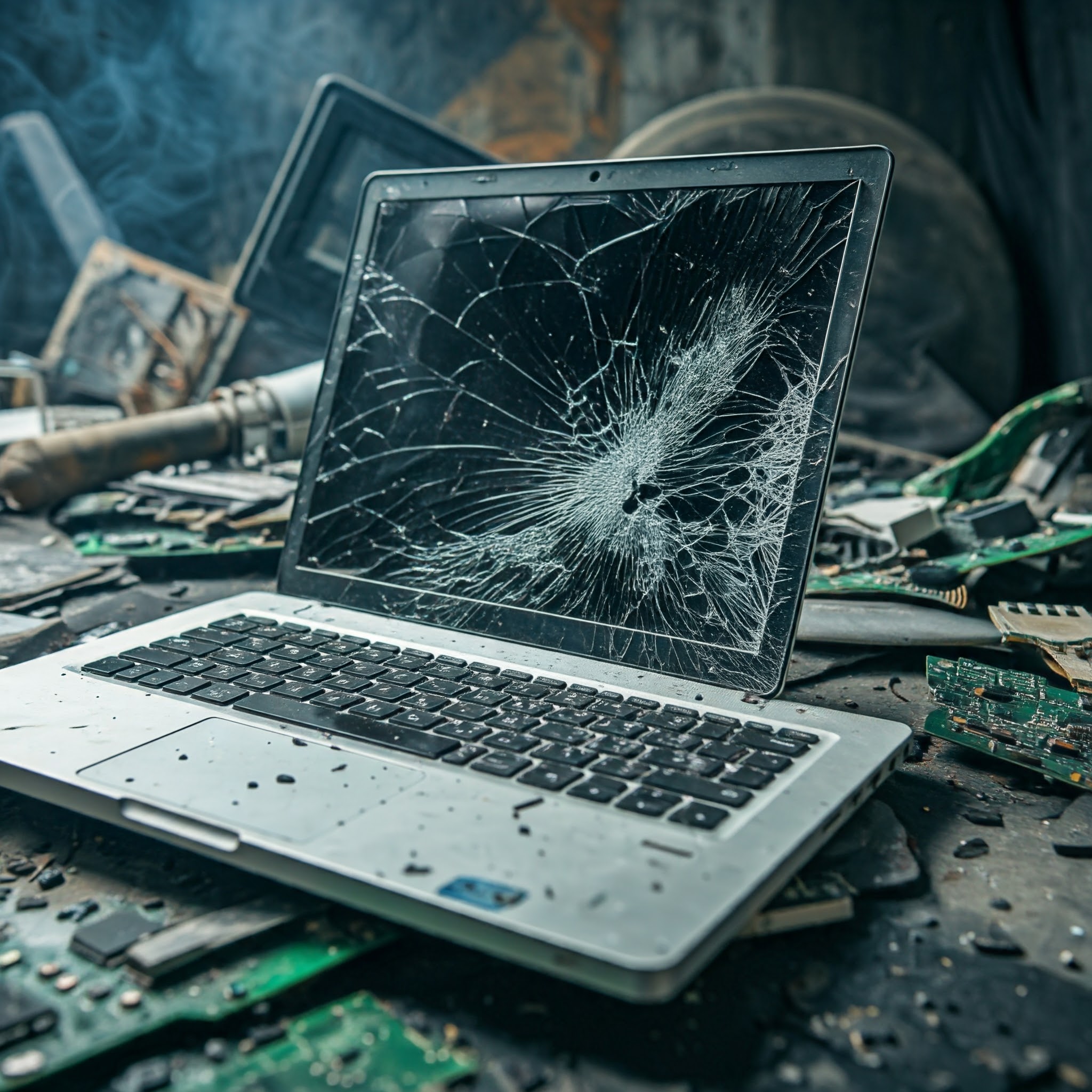The Laptop’s Hidden Cost: Ethical Dilemmas in Tech

In the sleek, modern world of technology, where laptops have become indispensable tools, a hidden cost lurks beneath the surface. The production of these devices, often perceived as innocuous, raises serious ethical questions about environmental impact and labor practices. From the extraction of rare earth metals to the assembly lines of factories, the journey of a laptop is fraught with challenges that demand our attention. This article delves into the complexities of laptop production, shedding light on the environmental consequences, the plight of workers, and the consumer’s role in driving change.
The production of laptops, while essential for modern life, leaves a significant footprint on our planet. The extraction of raw materials, particularly rare earth metals, often involves destructive mining practices that harm ecosystems and local communities. Moreover, the manufacturing process itself consumes vast amounts of energy and releases harmful pollutants into the air and water. As the demand for laptops continues to grow, so too does the pressure on the environment.
Beyond the environmental concerns, the labor practices involved in laptop production are equally troubling. Workers in factories, often located in developing countries, face long hours, low wages, and unsafe working conditions. Child labor and forced labor remain prevalent in some regions, highlighting the exploitation of vulnerable populations. The pursuit of profit at any cost has led to a disregard for human rights and the well-being of workers.
Key Takeaways:
- The production of laptops has significant environmental consequences, including habitat destruction, pollution, and energy consumption.
- Labor practices in the laptop industry often involve exploitation, with workers facing unsafe conditions, low wages, and long hours.
- Consumers have the power to drive change by making informed purchasing decisions, supporting ethical brands, and advocating for responsible corporate practices.
- Addressing the ethical implications of laptop production requires a collective effort from manufacturers, consumers, and governments.
- The future of technology depends on our ability to create a more sustainable and equitable industry.
Environmental Impact
The production of laptops, while essential for modern life, leaves a significant footprint on our planet. The extraction of raw materials, particularly rare earth metals, often involves destructive mining practices that harm ecosystems and local communities. For example, the mining of coltan, a mineral used in capacitors in electronic devices, has contributed to deforestation and conflict in the Democratic Republic of Congo.
Moreover, the manufacturing process itself consumes vast amounts of energy and releases harmful pollutants into the air and water. The assembly of laptops requires a complex supply chain, involving the transportation of components from various locations around the world. This transportation contributes to greenhouse gas emissions and other environmental impacts.
The disposal of laptops at the end of their lifespan also poses a significant environmental challenge. Electronic waste, or e-waste, is a growing problem due to the rapid obsolescence of electronic devices. Many laptops contain hazardous substances, such as lead, mercury, and cadmium, which can leach into the environment if not disposed of properly.
Labor Practices
Beyond the environmental concerns, the labor practices involved in laptop production are equally troubling. Workers in factories, often located in developing countries, face long hours, low wages, and unsafe working conditions. Child labor and forced labor remain prevalent in some regions, highlighting the exploitation of vulnerable populations.
The pursuit of profit at any cost has led to a disregard for human rights and the well-being of workers. In many cases, workers are subjected to abusive treatment, including physical and verbal abuse, and are denied basic labor rights, such as the right to unionize and negotiate for fair wages.
The complexity of the global supply chain makes it difficult to ensure that all workers are treated fairly. Many laptops are assembled in factories that are subcontracted by major technology companies, making it challenging to monitor working conditions and hold companies accountable for the actions of their suppliers.
Consumer Awareness and Action
Consumers have the power to drive change in the laptop industry by making informed purchasing decisions and supporting ethical brands. By choosing products from companies that prioritize sustainability and fair labor practices, consumers can send a message to manufacturers that ethical considerations are important.
It is also essential for consumers to be aware of the environmental and social costs associated with their purchases. By considering the entire lifecycle of a laptop, from extraction to disposal, consumers can make more informed choices about which products to buy.
Advocacy and engagement are also crucial in addressing the ethical challenges of laptop production. Consumers can support organizations working to improve working conditions and environmental sustainability in the technology industry. By raising awareness and demanding accountability, consumers can help to create a more ethical and sustainable future for the production of laptops.
Conclusion
The production of laptops is a complex process with significant environmental and social implications. While the benefits of technology are undeniable, it is essential to consider the hidden costs associated with these devices. By understanding the challenges faced by workers and the impact on the environment, consumers can make informed choices and advocate for a more ethical and sustainable future for the laptop industry.